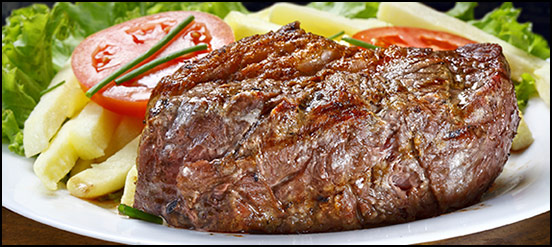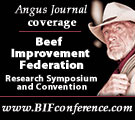Will dietary guidelines take beef off the plate?

Dietary Guidelines Update
Update provided in anticipation of new Dietary Guidelines Advisory Committee report.
Since May 2013, a 14-member Dietary Guidelines Advisory Committee (DGAC) has convened seven public meetings to gather comments and review scientific evidence related to dietary health. The committee, which is primarily composed of scientists and medical doctors, was tasked with creating a report with their recommendations for the 2015 Dietary Guidelines for Americans. The guidelines are updated every five years as a joint effort between USDA and the Department of Health and Human Services.
Beef checkoff staff have been involved in this process from the start, including nominating eight scientists for appointment to the 2015 DGAC and providing testimony and public comment on beef nutrition research. Shalene McNeill, executive director of Human Nutrition Research, Education and Innovation with the National Cattlemen’s Beef Association (NCBA), provided a brief update on the Dietary Guidelines process to attendees at the 2015 Cattle Industry Convention & NCBA Trade Show in San Antonio.
McNeill emphasized that the Dietary Guidelines are critically important because they establish the national nutrition policy, which influences federal military and school lunch programs. Additionally, the guidelines influence health professionals in their food recommendations to clients, as well as packaging and marketing of foods.
McNeill said, “Consumers may not know the specific Dietary Guidelines, but what they hear about the guidelines does impact their choices.” As an example, she said that Americans have had “a steady drumbeat telling them to eat less beef and increase their consumption of fish,” which has been what the Dietary Guidelines have recommended in past years. She continued, “They’d eat more beef if they felt better about including it in their diet (e.g., if the Dietary Guidelines recommended beef).
The final DGAC public meeting was convened in December 2014. Its final report was released in February 2015 and delivered to the secretaries of Health and Human Services and USDA, who ultimately set the policy for the new guidelines. (See "Dietary Guidelines: Recommendations are Misleading.")
Beef industry concern has been raised several times during the committee’s process.
Some of the DGAC’s initial considerations focused on the food environment and systems — including sustainability — which beef industry proponents felt was outside the scope of the committee’s work and expertise in nutrition.
The beef checkoff-funded Beef in an Optional Lean Diet (BOLD) study was excluded from the USDA National Evidence Library, which the DGAC uses as the basis for its recommendations. Despite several attempts by beef checkoff staff requesting reconsideration for inclusion of the study, it was denied.
At the seventh and final public meeting of the DGAC in December 2014, the committee defined common characteristics of dietary patterns associated with positive health outcomes. Initially, the recommendation to “consume lean meat” was included in those dietary patterns. However, after a private meeting, “lean meat” was removed from the recommended pattern and the recommendation to “lower consumption of red and processed meat” was included.
McNeill said the beef industry is now awaiting the release of the committee’s final report. She emphasized that beef checkoff staff will provide public comment when that occurs. She added that the staff will continue working to generate credible evidence about the nutrition benefits of beef in a healthy diet, as well as increasing scientific acceptance of positive beef nutrition research.
She also encouraged others to do their part to educate and influence family and friends about the nutrient- and protein-rich benefits of beef.
Lastly, during the update session a brief audio clip was played featuring Richard Gebhart, who serves as the Oklahoma Cattlemen’s Association president and vice chairman of the Oklahoma Beef Council, questioning USDA Secretary Tom Vilsack about concern that the nation’s Dietary Guidelines could remove beef from its recommendations. The exchange occurred on Jan. 30 at an event in Oklahoma celebrating the one-year enactment of the Farm Bill.
Vilsack responded saying he is monitoring the situation and has told the DGAC that he has concerns and some reservations scientifically about the guidelines.
He also stated, “I am emphasizing the word ‘recommendations’ for a reason … because it doesn’t necessarily mean that is what the guideline will be or should be. It is what this group believes ought to be.”
Vilsack concluded his comments emphasizing moderation: “It’s moderation of all things. It’s not excluding something, it’s just moderation.”

Editor’s Note: Kindra Gordon is a cattleman and freelance writer from Whitewood, S.D.





